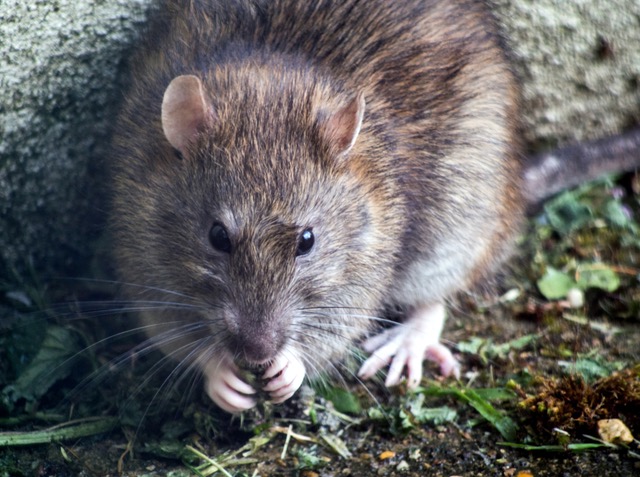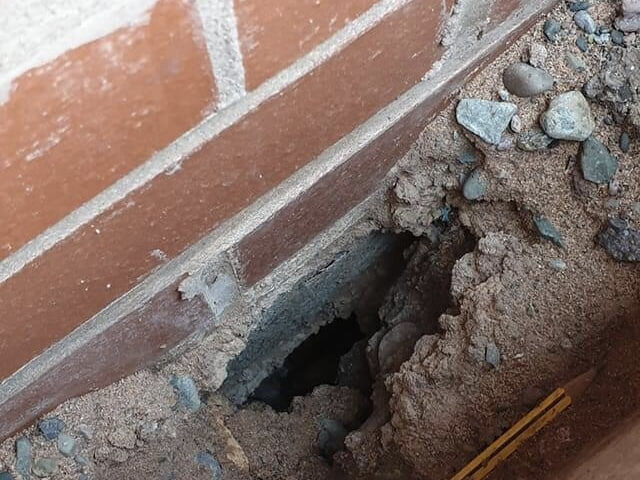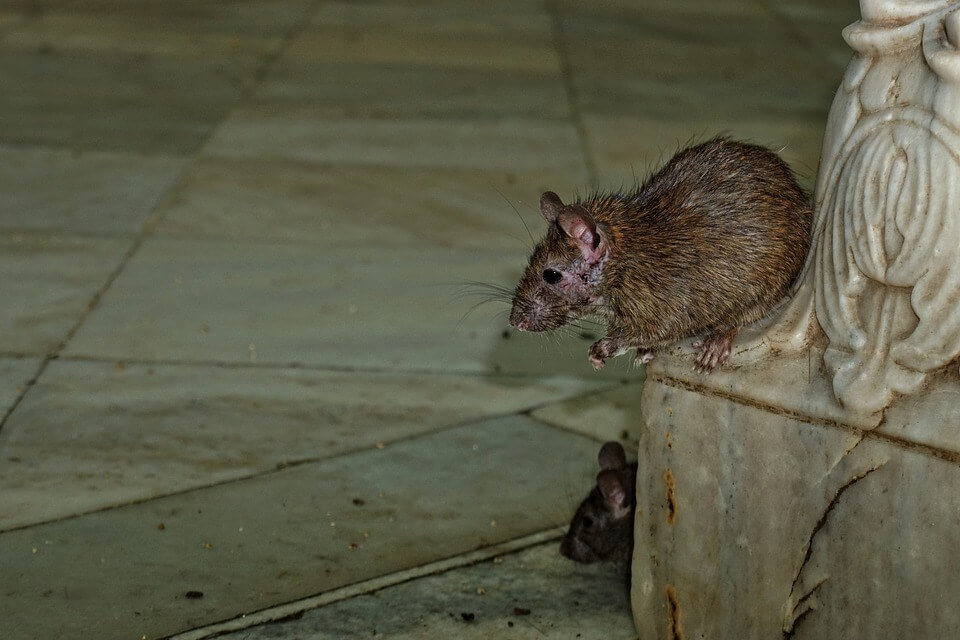Commonly found rodents and pests in Birmingham
October 14, 2020

The easiest way to distinguish rodents from other mammals is by their incisors that grow throughout their lifespan. That is the primary reason they constantly gnaw to keep their incisors sharp and in length.
The unique feature of their teeth is their strength that helps them to chew through wood and even soft metals like lead and aluminium.
The three most common rodents that are pests and found across the country are the Brown or Common rat (Rattus norvegicus), the domestic/house mouse (Mus domesticus) and the grey squirrel (Sciurus carolinensis).
While there is another rat species called the black or ship rat (Rattus Rattus), it is very limited in number and mostly found at port locations in the UK.
Rats:
Generally referred to as the brown, sewer or common rat they all are from the same species. They are found in various colours with brown and black the most common. Unlike the tall claims made by many, they are generally around 20 cm in length.
They are prolific breeders with up to 11 litters every year that is the cause for the rapid spread of their population. While cereals are their favourite, they are omnivorous and need around 30 grams of food daily. One of the factors that distinguish rats from mice is they need to drink at least 60 ml of water daily unlike mice that do not need any at all.
If you find rat droppings around the property and they are fresh and glistening it means they are probably nearby, as the droppings dry very fast. When they invade a property, it is best to call in the pros from any top-notch Birmingham pest control services like Aim Environmental Services to handle the situation.
Mice:
Many homeowners confuse mice with rats that is completely wrong. Mice do not only differ in size but also their behaviour. They might look cute and cuddly but do not let their appearance fool you. In the UK they are responsible for damages to the tune of millions of pounds annually.
Although, smaller in size than rats they cause worse damage. One of the reasons why they are so destructive is that people that see a mouse on their property think they are harmless and underestimate the damage they can unleash. They breed extremely fast and can have as many as 2000 kids annually. They multiply faster indoors because of the availability of food and protection from natural predators and within a short period, a home or business can be overrun with a mice infestation.
They do not need moisture and can survive perfectly well with dry food. They are extremely agile and their tiny size makes it easy for them to get in from the tiniest gaps. They tend to gnaw at cables (electrical & communication).
They live mostly in cavities of pipes and cables and can cause severe damage to their surroundings. Some of the signs of having them around are chewed items, droppings and occasionally seeing one of them scurrying across rooms. Installing mice traps will have limited results when they are in a large number. Instead, calling in a pest control Birmingham team will be far more effective.
Squirrels:
The UK has two squirrel species the grey and the red. The red species is on the endangered list and found only at a few spots across the land. It is the grey squirrel that carries the ignominious tag of being a pest. It was brought to the country from overseas in the period between 1876-1929 and have thrived all across the country.
The grey squirrel is very destructive by temperament and causes severe damage to fruit trees.
If they find their way into a property, they destroy almost anything they come across especially targeting cables and pipes and even ceiling joists. For nesting purposes, they gnaw their way into the insulation of any property. They are also very feisty and aggressive and can bite if they are cornered and feel threatened.
Reasons why rodent control is essential on any property:
Financial loss: Economic damages are the most crucial loss to any home or business. The amount of loss depends on the extent and the duration of the rodent infestation on any property.
Extensive damage: Almost all kinds of edible items are under threat from rodents whether at home or a warehouse. Furthermore, the damage extends to the structural integrity of a building, plumbing and electrical and communication cables and pipes.
Risk of contamination: Apart from the consumption of foodstuff, a large quantity is fouled and also contaminated because of their faeces, hair and urine.
Affects business: Any item or article that is damaged by a rodent or contaminated cannot be sold to customers as it is unacceptable.
Risk of infection: Rodents are carriers of various infectious diseases that can be hazardous both to the health of humans and pets.
Legal obligation: The Prevention of Damage by Pests Act (1949) makes it an offence to have any types of rodents on any premise. Also, for restaurants, hotels and pubs, under the Health & Safety at Work Act’s Food Safety Act all such locations must be totally clean and safe from anything hazardous to public safety.
Cause of distress: Many individuals get psychologically distressed upon seeing a rodent on any property where they live or work.
Healthy and safe work environment: The workplace must be safe and healthy to work for employees without risk to their health and wellbeing.
Risk of infectious diseases spread by rodents
Leptospirosis: Also known as Weil’s disease, it is among the most serious of diseases that rats are carriers of. Those working or come in contact with water at locations e.g. agriculturists, swimmers, anglers and canoeists are at risk. The infection is spread via any surface contaminated by rat urine or water, getting bitten or eating anything fouled by rats. It is estimated that 26-30% of brown rats in the country carry the infection.
Trichinosis: It is carried by roundworm and rats and mice spread it to pigs. From pigs, it is transmitted to humans although cases are rare.
Salmonellosis: Both mice and rats are carriers of salmonella that causes intestinal infections including typhoid. Humans contract it from consuming food that is contaminated.
Plague: The dreaded plague of the Middle Ages was caused and spread by rats. While it is thankfully wiped out from the UK and Europe, there are outbreaks still in Asia, Africa and South America. Consequently, ships that come into port from these destinations are de-ratted.
For any type of rodent control, Birmingham services call us on 01902 475175 or drop us a message on 01902 475175 or contact us online here.


Contact Us Today same day call out available
Having rats, mice and squirrels in your property or place of work can be traumatising, not only for the effect on your health, but also the damage that can be caused to personal property, belongings or stock.









